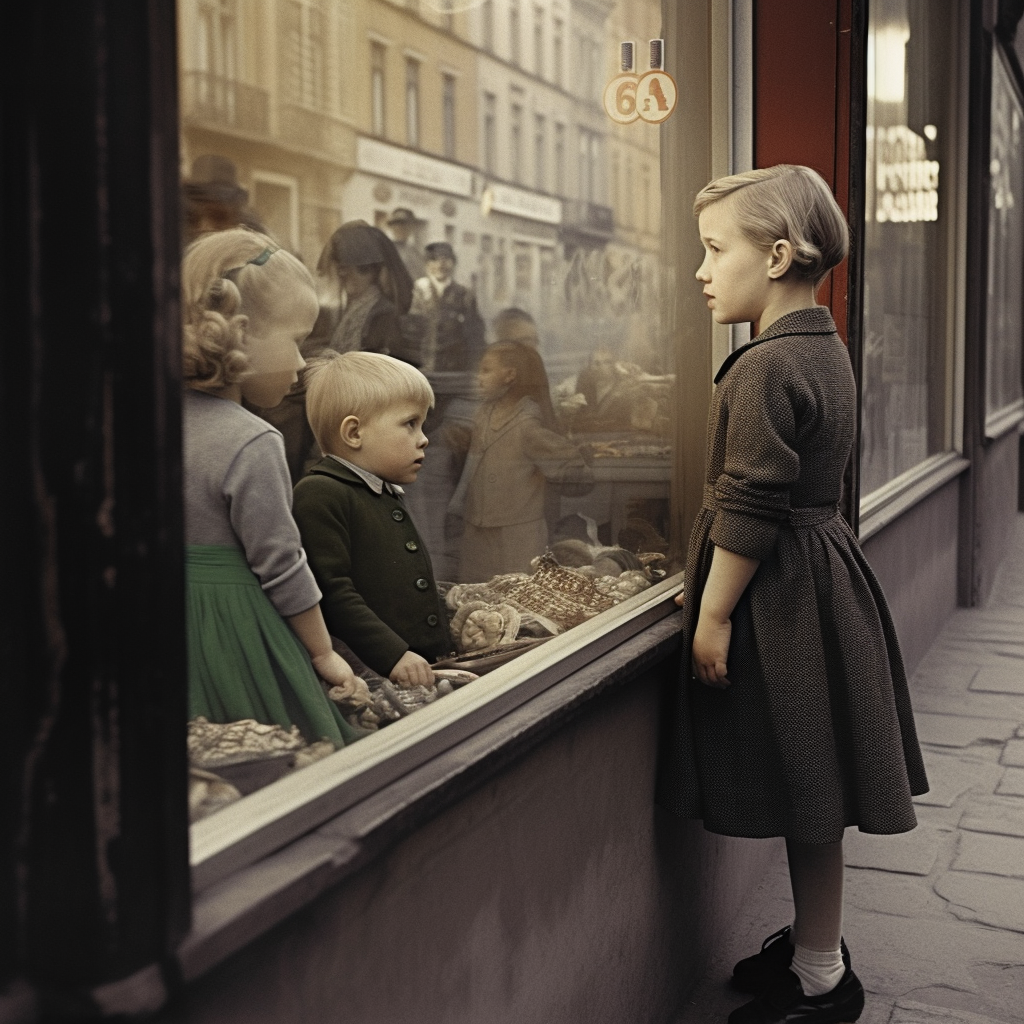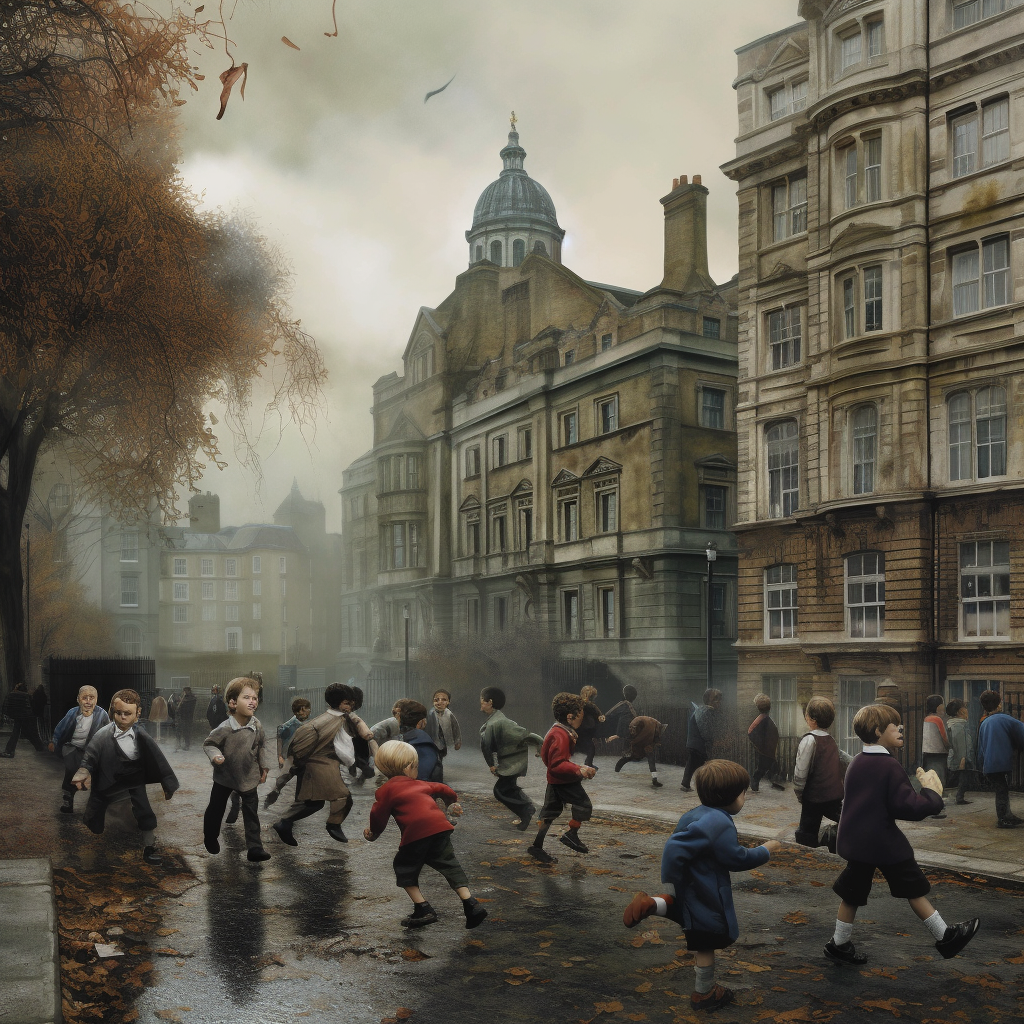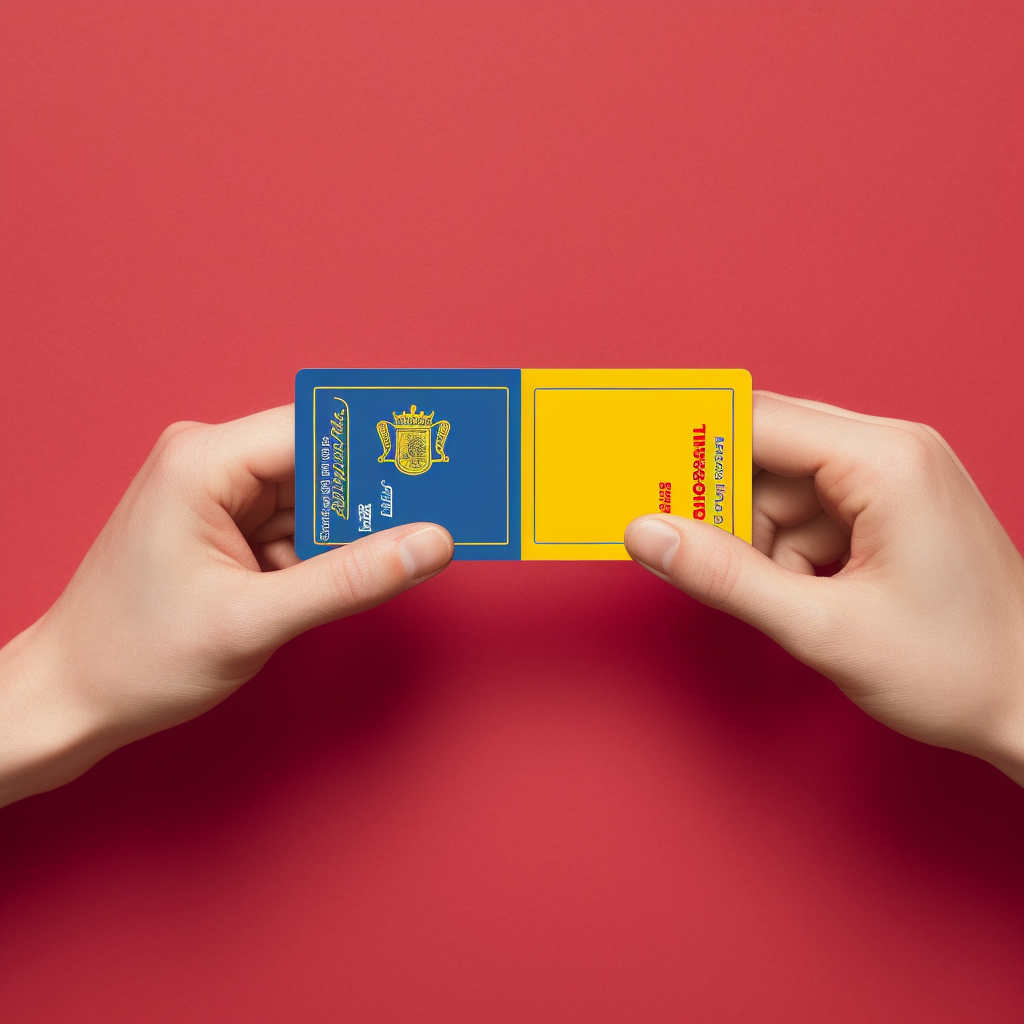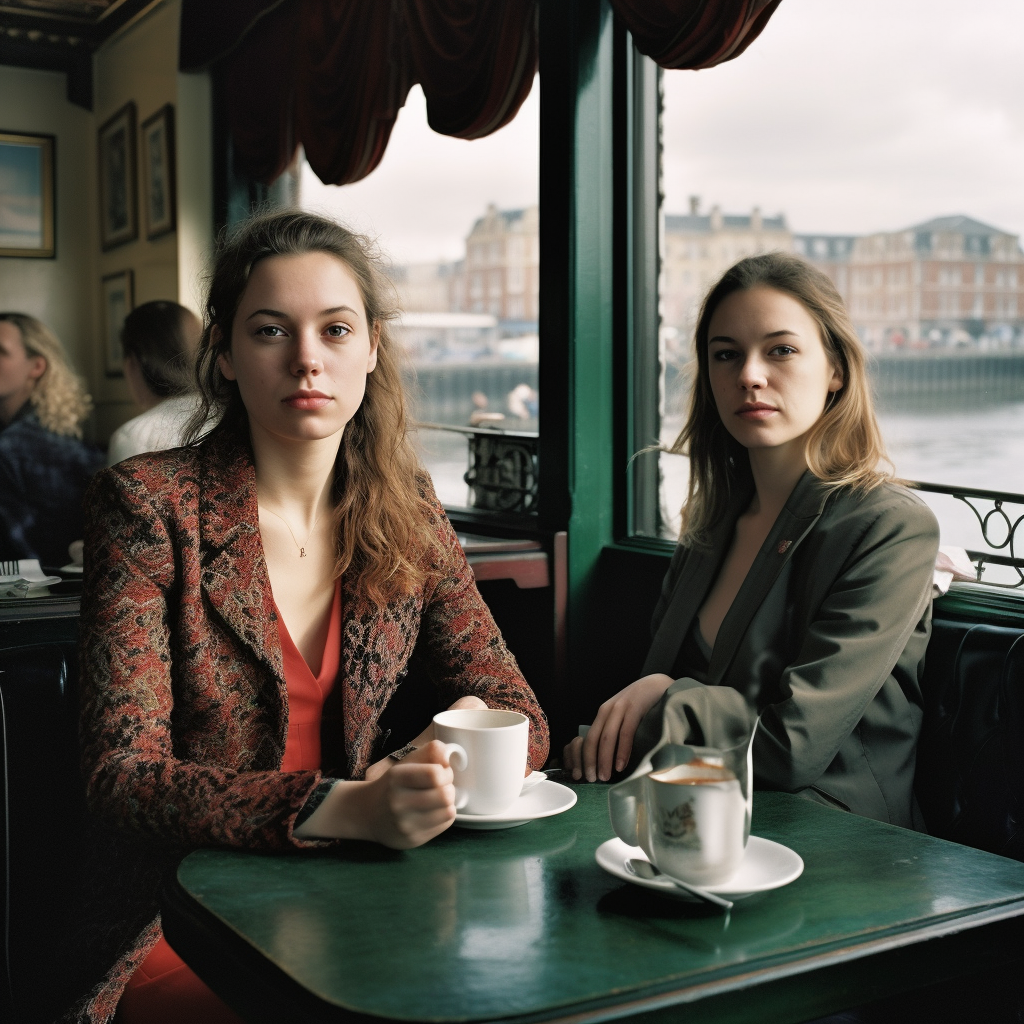Over a cup of coffee and half-eaten biscuit, Penelope, a well-educated British woman, and Zuzana, a Slovakian woman whose world was steeped in practical realities, dissected the intricacies of migration, classism, and the meaning of a ‘class card’.
Once upon a time, but not so long ago, in a country called Britain, and a city called London, there lived a bright young woman named Penelope. She was the picture of the upper-middle class, with her crisp clothes, her doctoral degree, and a flat that overlooked the famous Hyde Park. Her world was one of social soirees and theoretical discussions, where ideas were tossed around like a volleyball in a beach game.
In another part of the world, a working-class Slovakian girl named Zuzana lived. She had a different kind of brightness. It was born from grit, not sophistication. Zuzana’s world was of busses and metros, queues in front of community clinics, and classrooms overflowing with children of all nationalities. Her ideas weren’t tossed around, but lived, day in and day out.

As fate would have it, they met one day, in a little coffee shop near the Thames. The place smelled of fresh roast and newspaper ink.
“I understand that the situation appears difficult at first glance,” Penelope said, sipping her latte. “But you must perceive the broader perspective. The translocation of people brings about a confluence of cultures, an amalgamation of intellects, a vibrancy that is unparalleled.”
Zuzana nodded, not understanding half of the words Penelope used. She responded in her broken English, “Yes, yes, I understand. But what when you cannot find seat in hospital, no? Or kids do not get place in school? I know, we must help. But it is difficult.”
Penelope raised an eyebrow, a small smile playing on her lips. “Well, you see Zuzana, it’s the responsibility of a government to manage resources. It’s about redistribution, reallocation. We must allow for the macro to take effect.”

“Macro?” Zuzana asked, her brow furrowed.
“Well, yes, my dear,” Penelope continued, “the macro perspective, the long-term. A larger, societal shift. You see, such transitory inconveniences are but minor hiccups on the path to a prosperous, multicultural society.”
Zuzana stared at Penelope for a moment, a half-eaten biscuit in her hand. She sipped her strong black coffee and sighed. “I understand what you say. But for me, my children, it is not just talk, not macro. It is life, you see? It is today, and tomorrow.”
“And it’s not inconveniences,” Zuzana added, “it’s real problem.”
Penelope looked at Zuzana, her smile still intact. She took a long sip of her latte, and said, “Oh, Zuzana, my dear, you need to step out of your microcosm and envisage the greater good.”
But Zuzana wasn’t listening. She was looking out the window, at the kids from her neighborhood playing in the park. Their parents were from all over the world, just like them. And yes, it was vibrant, and it was multicultural. But it was also overcrowded, and it was also struggling.

“Maybe,” Zuzana said, finally turning back to Penelope. “But still, it’s my microcosm.”
The conversation hovered in the air for a moment before Penelope steered it towards a different direction, “And class, Zuzana. Classism is another issue to contend with, particularly here in Britain.”
Zuzana tilted her head, her expression perplexed. “Class? Like in school?”
“No, dear,” Penelope sighed, shaking her head slightly, the spoon clinking against her porcelain cup. “Social class. Socioeconomic status. The stratification of society into levels based on wealth, education, and job, you see.”
Zuzana looked out the window again. Her gaze fell upon a man in a suit, a fancy hat on his head, stepping out of a shiny black car. Beside him, a man in dirty work clothes pushed a wheelbarrow filled with bricks. She turned back to Penelope.
“I see,” she said, though her tone suggested she didn’t, not really. “But we have rich and poor in Slovakia too. Is it different here?”

“In essence, it’s the same everywhere,” Penelope began, warming to the subject, “But here, class is not just about wealth. It is intricately interwoven with one’s accent, school, manners, hobbies, the books one reads, and even the television shows one watches. The nuanced conventions and expectations, they all subtly reinforce the class divide.”
Zuzana squinted at Penelope, trying to comprehend. “So, you mean, the rich people are better?”
Penelope chuckled, shaking her head. “No, not better, Zuzana. Different. They live in a different world, you see.”
Zuzana looked out the window again, this time at a mother pushing a pram. The baby inside was wailing, the mother’s face strained. She turned back to Penelope.
“And this different world,” she asked, her eyes searching Penelope’s face, “is it better for the baby?”
Penelope paused, her cup halfway to her lips. “Better? I suppose it could be, for some. But also lonelier, for others.”
“So, better but lonelier?” Zuzana pondered aloud. “Why would anyone want to live in such a world?”
Penelope didn’t answer immediately. She stared into her coffee, as if looking for the answer at the bottom of the cup.
“You see, Zuzana,” she began, slowly, “it’s not really about what one wants. It’s about what one is born into.”
Zuzana stared at Penelope for a moment, then at her half-eaten biscuit. She shrugged, picked it up, and took a bite.
“To me,” she said, once she had swallowed, “it all seems very complicated.”
“Indeed,” Penelope said, her tone softening, “It is.”
And so they sat, Penelope and Zuzana, each one lost in her own thoughts. Their conversation had covered quite some ground, from migration to classism, and now it hovered around them like a cloud.

Just as Penelope was about to break the silence, the bell above the cafe’s door chimed. Both women turned to look as a man walked in. He was tall and had the look of someone who was used to commanding attention. His suit was immaculate, his posture straight. It was the man Zuzana had spotted earlier, stepping out of the shiny black car.
“Penelope,” the man said, offering a curt nod of his head. Penelope’s surprise was evident, but she quickly covered it with a polite smile.
“Hello, Edward,” she said, her voice steady. Edward was her brother, and he represented everything Penelope had been explaining to Zuzana.
Edward barely glanced at Zuzana before turning back to his sister. “Mother asked me to find you,” he said, his tone clipped. “She needs your help with the fundraiser.”
“I’ll be there soon,” Penelope said. Edward nodded and left, the bell chiming once more.
Penelope looked at Zuzana, an apology in her eyes. “I need to leave,” she said.
As she rose to leave, Zuzana furrowed her brow, clearly mulling over something. She looked up at Penelope, a hint of confusion in her eyes.

“Penelope,” she began, “this class, is it something that people have? Like in Lidl, you know, they ask about a ‘class card’ at the checkout. I do not have it. Is this what class is about?”
Penelope stared at Zuzana for a moment, surprised by her question. But then she started laughing, a light, genuine laugh that echoed around the little cafe.
“Ah, Zuzana, my dear,” Penelope replied, still chuckling. “I think that’s the ‘club card’ you’re talking about. But it’s a wonderful interpretation, isn’t it?”
Zuzana looked at Penelope, a blush creeping up her cheeks. She smiled sheepishly and shrugged. “It all sounds the same to me,” she admitted.
Penelope looked at Zuzana for a long moment, the smile fading from her face. And in that moment, something shifted in her, something profound. She was touched by Zuzana’s innocence, her lack of pretense, her way of seeing the world without the complexities of social stratification.
She nodded slowly, a soft smile playing on her lips. “You know what, Zuzana?” she said, her voice barely above a whisper. “Yes, it’s all about the ‘class card’. Or ‘club card’, as some call it.”
And with that, Penelope left the café, carrying with her the echo of Zuzana’s innocent confusion. Because in that little coffee shop, near the Thames, she’d discovered something priceless: the beauty of seeing life without the lens of social class.
And as Zuzana sat there, watching Penelope disappear into the hustle and bustle of London, she felt a little less confused, a little more understood. She looked down at her half-eaten biscuit and smiled to herself.
“Class card,” she muttered, shaking her head. And with a chuckle, she took another bite.

All images were generated using Midjourney
